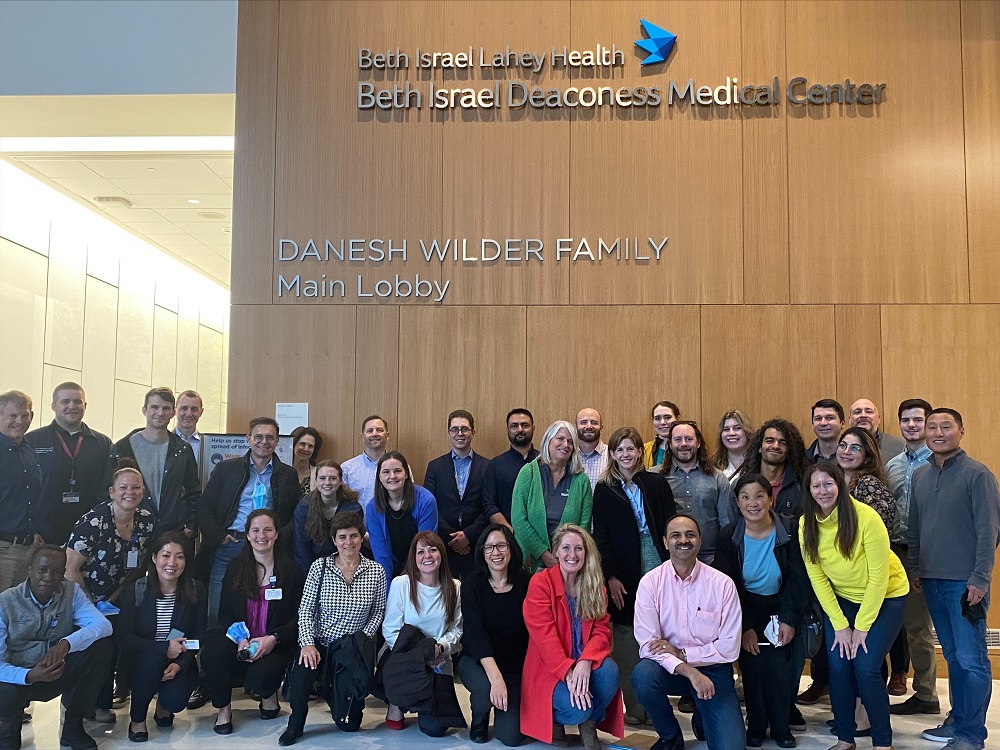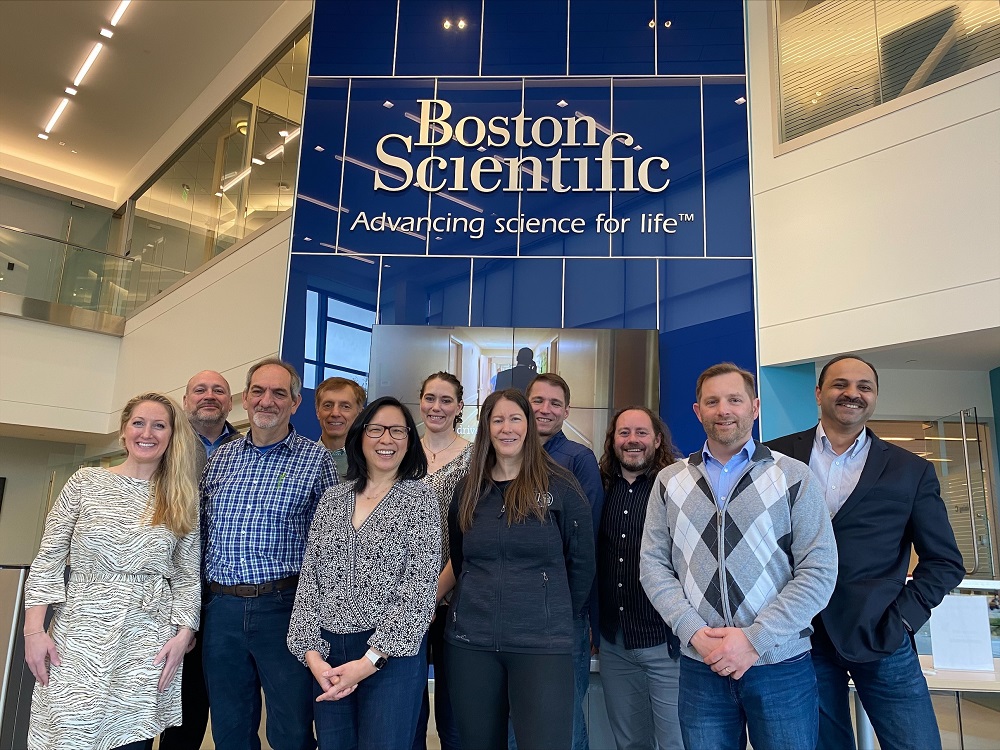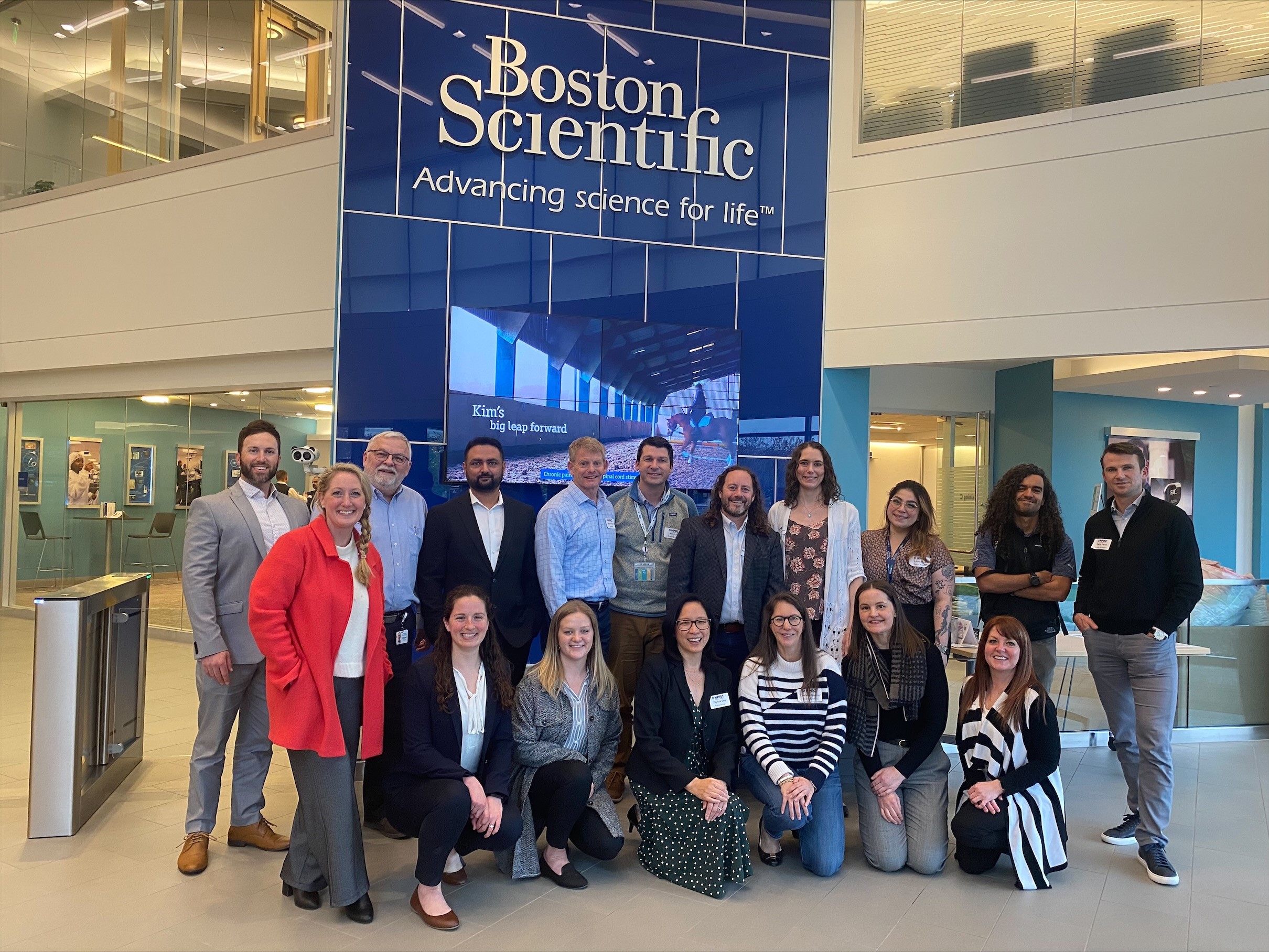HPRC Full Council Meeting
HPRC recently concluded its Spring Full Council meeting in Boston, MA. The council convenes biannually at meetings hosted by an HPRC member and topics on the agenda include project planning and updates, guest presentations on trending topics, and stakeholder engagement events. Members are invited to join facility tours to further learning and knowledge-sharing opportunities through first-hand demonstration of best practices in sustainable product and packaging design and recycling processes.
Following is a recap of key topics covered across a two-day agenda on May 2-3, 2023.
Recycling Program Success & Challenges
On day one, HPRC members convened at Beth Israel Deaconess Medical Center for a meeting focused on hospitals and their first-hand experiences with recent recycling successes and challenges. While most recycling activities were put on hold during the COVID-19 pandemic, many hospitals are now starting to revisit and reinstate their programs. The Ohio State University Wexner Medical Center shared how they overcame challenges related to staffing, access to accurate data, and limited space to achieve a 37.4% diversion of non-hazardous plastic waste from landfill. Lehigh Valley Health Network also shared how they partnered with B Braun and Purecycle Technologies to collect and recycle packaging materials, non-PVC IV bags, disposable gowns, masks, and more.
While these success stories are promising, hospitals voiced that there were still plenty of challenges to overcome, especially related to staffing and turnover, consistent and frequent training, internal budgets, and logistics of keeping waste separated as it moves across a facility from point of collection to dock.
Hospital Trends
During these discussions, hospitals also shared trends that they were seeing within their organization as well as the industry at large. When it came to recycling priorities, hospitals are focused on materials that can go into single-stream recycling, as there isn’t capacity or space for hospital staff to sort on site. Hospital members also shared that they are focused on OR and procedural rooms to target healthcare plastics, as these locations have proven to have a high success rate in collecting clean materials.
When asked about what sustainability attributes they look for in products, hospitals responded that they lean heavily on GPO’s such as Vizient and Health Trust to provide product sustainability criteria but admit that the information is sometimes difficult to integrate into decision-making since procurement in many cases tends to be a hospital-level function and not a system-wide function. Hospitals were clear, however, that they are looking to shift to reusable products where possible and eliminate unnecessary items, stating that end-of-life solutions for a product are more important than ever.
The Joint Commission Proposed Standards on Sustainability
After that, HPRC members heard an update from Ohio State University Wexner Medical Center and Hackensack Meridian Health on the recent Joint Commission decision to back away from proposed standards on sustainability, and instead, roll them out as optional. The proposed standards would have required hospitals to designate a person responsible for overseeing the reduction of greenhouse gas emissions, measure specific data, develop goals and action plans to reduce those emissions and annually track progress. However, overall feedback on the proposal was negative, mostly from senior administrators who say they are overwhelmed with workforce shortages, financial challenges and patient disposition concerns. In contrast, younger clinicians and sustainability leadership at hospitals were enthusiastic and supportive of the standards.
Our discussion concluded with the strong sentiment by hospitals that while the decision by The Joint Commission to make sustainability standards voluntary is disappointing, the healthcare systems that value and are committed to sustainability will move forward with more aggressive goals and plans for decarbonization anyway.
Day one concluded with a recycling tour of Beth Israel Deaconess Medical Center where members got to see how and where plastic materials are collected and move through a hospital.


On day two, HPRC members were hosted by Boston Scientific at their Marlborough, MA campus. The agenda for the day included sessions on recently completed and ongoing project work, trends in sustainable procurement, hospital recycling pilot programs, and new member presentations from Brightmark and Dow.
The theme of the meeting was ‘Aspiring to Circularity’ — a concept that the council continues to advance through its work to not only ensure that healthcare plastics are safely and effectively recycled, but also widely accepted as a valuable resource that supports a circular economy.
HPRC Projects
HPRC is a member-driven organization and member expertise is a driving force behind our project work. During the session on project updates, each project leader presented project scope, timeline and intended deliverables, as well as solicited input from the full council on specific project topics.
Here is a look at the ongoing FY23 Projects:
Advanced Recycling Position Paper
Project Leaders: Lindsay Smaron, Boston Scientific and Nick Packet, DuPont
The purpose of this project is to develop an HPRC position that describes the healthcare industry perspective on advanced recycling, if implemented properly, as an opportunity for circularity. The position paper will present recycling within the waste hierarchy of reduce, reuse, recycling, position advanced recycling as a complimentary solution to mechanical recycling, outline different advanced recycling technologies and differentiate between waste-to-fuel (recovery) and waste-to-material (recycling) outputs.
Advanced Recycling Pilot
Project Leaders: Cal St. Denis, Johnson & Johnson and Sheri Prosch, Medtronic
This project is an extension of FY22 project scope to include additional hospitals to collect materials and integrate additional advanced recycling testing into the pilot to validate that mixed-stream healthcare plastics can produce a pyrolysis oil that would be suitable for creating new plastics.
Procurement Sustainability Criteria
Project Leaders: Katherine Hoffman, Eastman and Zach Muscato, Plastic Ingenuity
The scope of this project is to research, aggregate and consolidate sustainability criteria for plastic packaging and medical devices across major US and European procurement organizations. The end goal is to identify common attributes to universalize requirements and supplier inquiries. The project team has launched two surveys to collect data and would appreciate participation from both medical device manufacturers and hospitals.
Guest Presentation by HealthTrust
Zoe Beck, Director of Sustainability at HCA Healthcare, joined the meeting to provide an update on the current market pressures in healthcare, how health systems are addressing those pressures, and what partners can do to help. Beck shared that with mounting challenges related to ESG reporting, inflation, supply chain, and labor, hospitals are looking to work in closer partnership with GPO’s, suppliers, clinicians, and local organizations. This is especially true when it comes to data. The overarching message was that hospitals need data that will allow them to better understand the impacts of their buildings, their purchasing, and their operations in general. The call to action for all suppliers was to measure their own impact, work collaboratively with hospitals, and help tell the story of mutual successes.
In conclusion, our Spring Meeting reinforced the critical nature of value chain collaboration when enabling plastic recycling solutions in healthcare. Thank you to everyone – in-person and virtual – who contributed to the discussions, shared ideas and insights, and brought positive energy. Plastics recycling is complex, evolving, exciting and misunderstood – but most of all it is necessary. We are looking forward to seeing everyone in the Fall!

